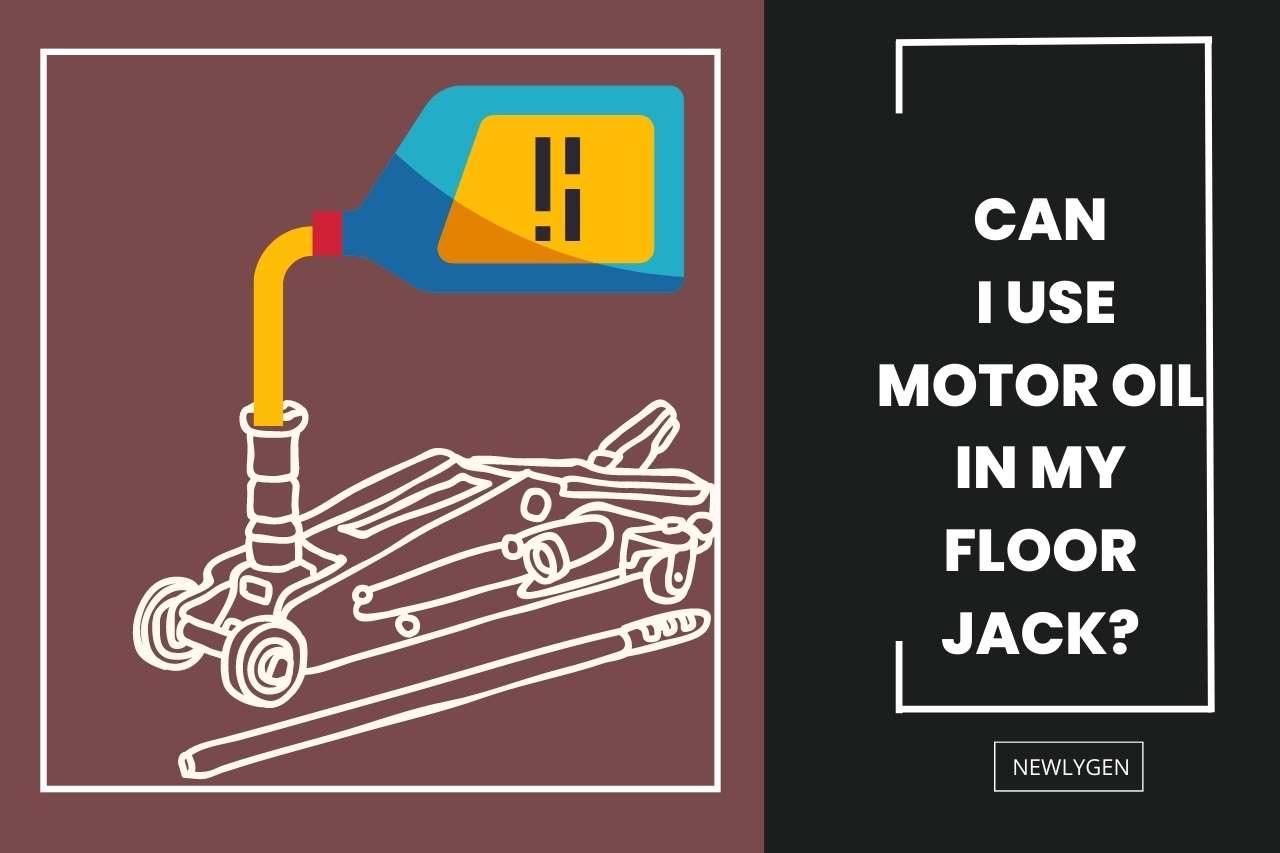Can I Use Motor Oil in My Floor Jack? Dangers Of Using Motor Oil!
The floor jack is a mostly-required equipment in the automobile field since it aids in lifting cars. The floor jack needs some lubricant or grease to perform smoothly. But when you are going to use a brand-new jack, you might have the problem of what oil to choose. The first oil that most people remember is motor oil.
But Can I use motor oil in my floor jack? You should know the potential outcomes before you use motor oil for the floor jack. So, refer to the below sections.
What Types of Fluid Should Be Used in a Floor Jack?
The oil you are going to use for the floor jack should have low-foaming characteristics which are compatible with a hydraulic system.
The oil should be lightweight. And also, it should have the ability to prevent rust and provide better oxidation. And the oil should be a type of non-compressible and a low viscosity oil.
The range for the viscosity is from 22 to 32 CST. The reason why, the piston has to be moved in order to generate the power in the floor jack. Lastly, it would be better to use an oil which is fire-resistant.
Jack oil is utilized to transfer power and heat. And also, it is beneficial to seal and lubricate the system.
It does not matter to use either synthetic or mineral oil if these qualities are had. So, it is not hard to find an oil that has these qualities within your kitchen area. For example, vegetable oil contains the characteristics mentioned above.
Can Motor Oil Be Used in a Floor Jack?
The direct answer is no! motor oil is not compatible with the floor jack mechanism. The reason why, it is a hydraulic system, so you will need hydraulic oil to run a floor jack.
The consistency of Hydraulic oil is lightweight, so it cannot run at high temperatures. The standard temperature of hydraulic oil is 40C, and it comes with ISO22 certification. And manufacturers add some addictive to jack oils to protect the jack from rust, oxidation and wear.
In contrast, motor oil is a heavy oil which runs at higher temperatures since they are specially made for car engines. Moreover, the viscosity level of the motor oil does not match for a hydraulic system.
If you use normal motor oil, the jack can be damaged. Therefore, you should avoid motor oil in your floor jack.
Similarly, brake oils should not use for floor jacks because they contain a lot of addictive that a floor jack does not require.
If you have a lightweight motor oil according to its grading, it can be used for a floor jack. But remember that the standard oil for floor jack is hydraulic jack oil.
What are the Alternatives to Motor Oil for a Floor Jack?
All the hydraulic fluids are not used as jack oil. To use oil for the floor jack, it should be thermally stable and non-corrosive.
Moreover, it should have a low viscosity. When it comes to the alternatives that come with these characteristics, we can identify the following oils.
However, you are always encouraged to use an oil which is specially designed for jacks. Sometimes, the warranty will not be applicable if you have used another oil for the jack, despite the manufacturer’s advice.
-
ATF (Automatic Transmission Fluid)
This substitute is suitable for small hand-operated jacks. However, there are some addictive in ATF, and they can damage the seals of your floor jack. And also, it can foam in high temperatures.
-
Lightweight Motor Oil
If you use motor oil, make sure to choose one which comes with a viscosity grade of 10W or 20W. Do not go for other normal high-grade motor oils since it lacks viscosity.
-
Vegetable Oil
Sunflower, canola or soy oils can be recommended to use as a jack oil. These oils are non-toxic and high in lubricity.



How to Fill a Hydraulic Floor Jack with Oil?
- Firstly, keep your floor jack on a stable surface and lose its release valve. Then the jack lowers as you are able to access its filler plug. Mostly, you need to rotate the handle anti-clockwise to lose the release valve. If your floor jack has a flat head, you should turn it anti-clockwise. If the mechanism of your floor jack is different, refer to the user manual.
- Use a suitable screwdriver to remove the screws of the cover plate. If the cover plate is not attached with screws, you should lift the plate.
- Next, the filler plug should be removed. Again, you will need the screwdriver to unscrew the plug. In some jacks, it will pop out, so you only need to lift it with the help of a flat-head screwdriver. You should not damage the plug during this process. Then, take a few minutes to clean the plug if there is any debris or grease.
- Now use a flashlight to check the oil level. If the level has dropped, fill the oil carefully. It would be better to use a funnel to avoid splashing.
- After you fill the oil, take the filler plug and set it in place. According to the method you remove it, you can insert it back. Before lifting anything heavier, ensure to test the jack.
How to Maintain a Floor Jack to Prevent Fluid-related Issues?
The first thing is it is vital to use a suitable jack oil at regular intervals. Therefore, you need to check the oil level in your floor jack.
If you forget to refill the oil, the equipment will not be able to function smoothly. In addition, it can be worn out quickly. The jack oil has the ability to prevent rust and oxidation as well. So, it is a must to use jack oil to maintain the floor jack well.
If there is a leak of oil in your jack, you should repair it according to the manufacturer’s recommendations.
As we discussed above, when you disassemble the floor jack, use suitable tools to avoid any damage. And make sure to clean the plug using some rags. Mostly, there are grease and debris due to oil residue.
You May Also Like





![What Causes Spray Paint to Bubble? [Steps To Fix It]](https://newlygen.com/wp-content/uploads/2023/02/what-causes-spray-paint-to-bubble-1-768x512.jpg)

